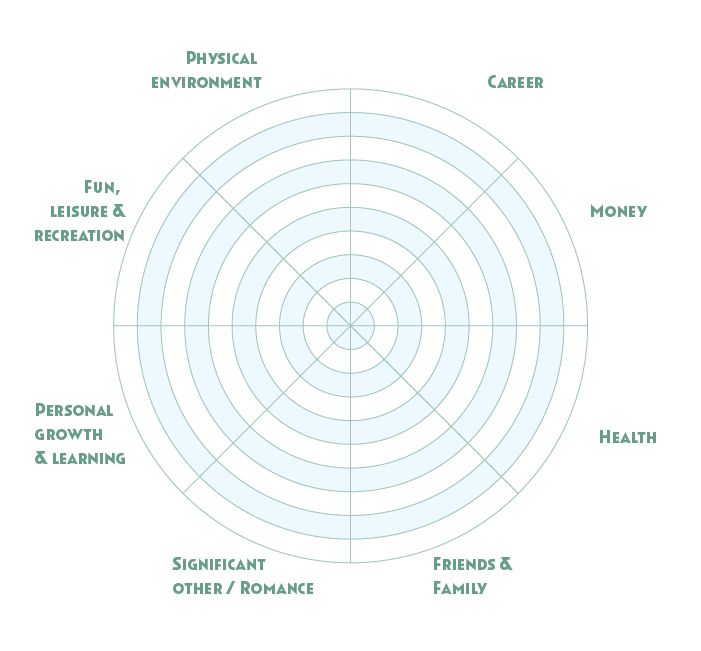In my 17+ years of coaching executives, leaders, entrepeneurs, employees and people in between jobs, one thing stands out for me. Making plans and setting goals aren’t the issue; it is finding fullfilment and purpose in what you do, in the process. My clients are looking for results in terms of how they experience their professional as well as their private life. In the end you want to experience more balance, more joy, more flow.
How do you want to spend your time? What is giving you meaning? A sense of purpose, satisfaction?
Satisfaction doesn't come from material success alone; it’s deeply connected to a sense of purpose and achievement.
But how do you define your purpose? Executive coaching can help you dig into these tough questions.
At the bottom of this blog I have included a link with a leaflet to the Wheel of life. This can give you an opportunity to evaluate your life as it is right now and how you would like it to be in the future. It will provide a visual roadmap on which steps you can start to explore.
This assessment encourages self-reflection and helps you gain a new perspective on your ambitions in work and life. This clarity empowers you to make more meaningful decisions in both your personal and professional life, fostering a sense of accomplishment and fulfillment.

One of my former executive coaching clients, a highly succesfull consultant and interim change manager, asked himself this question: how can I use my skills, knowledge and network to benefit others who are less privileged?
He dreamed up a project, combine his passion for education and his love for Africa.
This resulted in the Ubuntu Leadership Program.

In my book Get to the Core on page 30 I have posed a question in order to assess your life.
Addressing a Lack of Direction
A lack of direction is often accompanied by feelings of overwhelm, stagnation, or discontent. As an executive coach, I work with clients to break down these barriers , guiding them to define clear, actionable goals that align with their true aspirations. Whether you are a corporate leader or an entrepreneur, coaching can offer the tools to reconnect with what truly matters to you, leading to sustainable growth and long-term satisfaction.
One effective tool used in coaching is the Wheel of Life, a visual model that helps you assess balance across key areas of your life, including career, relationships, and personal growth. This model allows you to identify areas where you're thriving and where you may need more focus, creating a roadmap to find the direction you need.
Are you on the fence of making a decision?
For example, whether you should change your job or make more time to work out? Usually one decision in life or work cascades into consequences in other areas in your life? You only have a fixed amount of time to spend. To gain more direction in where to begin?
Try and use the wheel of life like one client did. She first made the assessment of the Wheel of life individually. Then she asked her husband to fill in his own assesment of his life and work. Examening the results, they could agree and make descisions in order to create more fulfillment and purpose in their lives.
The Power of Self-Awareness
Self-awareness is a key focus in executive coaching. As a coach I help you become more attuned to your strengths, weaknesses, and emotional triggers, as well as your personal bio rhythm. Self-awareness can lead to balancing and managing your energy levels. And this self-understanding can unlock a new level of satisfaction, enabling you to create a more purpose-driven and fulfilled life and work.
"Are you a morning person or a night owl?", I asked a client who is an international renowned dj. "What time of day are you most creative? What would be your ideal way of planning your day to be your most creative self?"
For him, it turned out that the mornings were excellent times to play and experiment with sounds. Then he would go for a run with his beloved dog and by 10am he would have his first online meeting. He experienced more joy and fulfillment in his work and life.
Simply by starting assessing and addressing the energy gain and drain in his life and planning his day in order to spend his energy more wisely.
How would you answers these questions for yourself?

